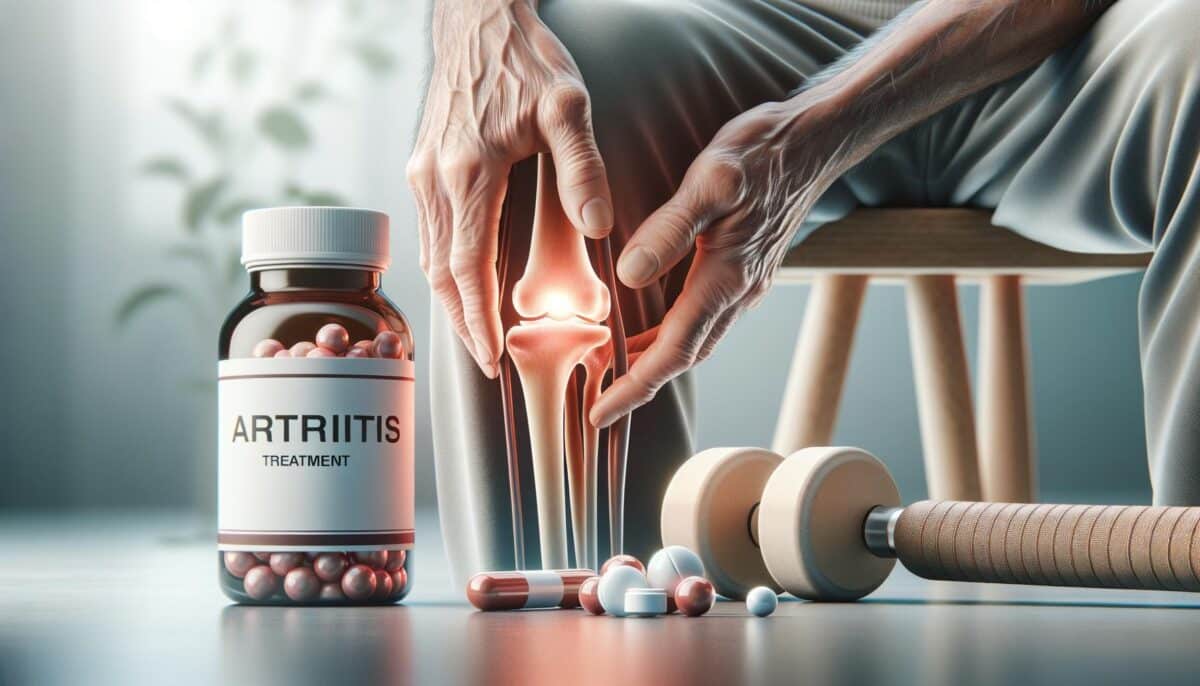Understanding Arthritis and Its Impact
Arthritis encompasses a range of joint disorders that cause pain and stiffness. Two of the most common forms are osteoarthritis and rheumatoid arthritis. While osteoarthritis is a degenerative disease resulting from wear-and-tear of the joints, rheumatoid arthritis is an autoimmune condition where the body’s immune system attacks the joint tissues. Understanding the specific form of arthritis you are dealing with is crucial, as it dictates the course of treatment. The impact of arthritis is profound, affecting not just physical health but also the psychological well-being and quality of life of individuals. Early diagnosis and intervention can greatly influence the effectiveness of arthritis treatment strategies.
Treatment Options: A Multidisciplinary Approach
Treating arthritis often requires a combination of therapies aimed at alleviating symptoms and improving joint function. Common treatment options include:
- Medication: Nonsteroidal anti-inflammatory drugs (NSAIDs) help reduce inflammation and manage pain. Disease-modifying antirheumatic drugs (DMARDs) are used specifically for rheumatoid arthritis to slow disease progression.
- Physical Therapy: Tailored exercise routines can help maintain joint flexibility and strengthen muscles around affected joints.
- Occupational Therapy: Assists patients in finding new ways to perform daily tasks without putting extra stress on their joints.
- Surgery: In severe cases, joint replacement surgery may be necessary to restore mobility.
To optimize treatment efficacy, it’s crucial to partner with healthcare providers to tailor interventions to one’s specific needs.
Arthritis in Fingers: Specialized Treatments
Arthritis in fingers can be particularly challenging due to the essential role fingers play in daily activities. Treatment for arthritis in fingers involves both medical and lifestyle interventions. Medication can address inflammation and pain, but incorporating hand exercises is key to maintaining dexterity. Specific treatments include:
- Splinting: Supports finger joints, especially during activities that might exert excessive pressure.
- Heat and Cold Therapy: Applying heat can relieve stiffness, while cold packs help reduce swelling.
- Ointments and Creams: Topical treatments can provide localized relief.
Through a combination of these strategies, individuals can often improve finger function and reduce the discomfort associated with arthritis.
Complementary and Alternative Therapies
Many people with arthritis explore complementary therapies to supplement conventional treatments. These therapies can provide additional relief and improve overall wellbeing. Some popular options include:
- Acupuncture: Involves the insertion of thin needles into specific body points to relieve pain.
- Massage Therapy: Improves circulation and reduces muscle tension around affected joints.
- Herbal Supplements: Certain herbs, such as turmeric and ginger, have anti-inflammatory properties.
It’s important to consult with healthcare professionals before starting any alternative therapies to ensure they align with your overall treatment plan and do not interfere with prescribed medications.
Staying Active with Arthritis
Engaging in regular physical activity is essential for managing arthritis effectively. Exercise increases strength and flexibility, reducing joint pain over time. It is crucial to find an activity that you enjoy and can do consistently. Recommended activities include:
- Swimming: Provides a full-body workout without stressing the joints.
- Cycling: Enhances cardiovascular health while being gentle on the joints.
- Yoga and Tai Chi: Improve balance, flexibility, and stress management through gentle movement and mindfulness.
By incorporating physical activity into daily routines, individuals with arthritis can enhance their mobility, improve mood, and slow the progression of joint damage.
Conclusion: Empowering Your Arthritis Journey
Managing arthritis effectively requires a proactive and informed approach. By integrating medical treatments, lifestyle adjustments, and alternative therapies, individuals can significantly improve their quality of life. Regular consultations with healthcare providers ensure that therapies are adapted to changing needs, optimizing outcomes. Remember, while living with arthritis presents challenges, the right combination of treatments can empower you to lead an active and fulfilling life.
